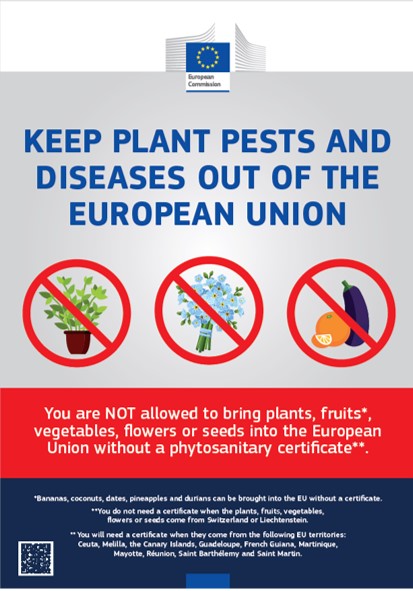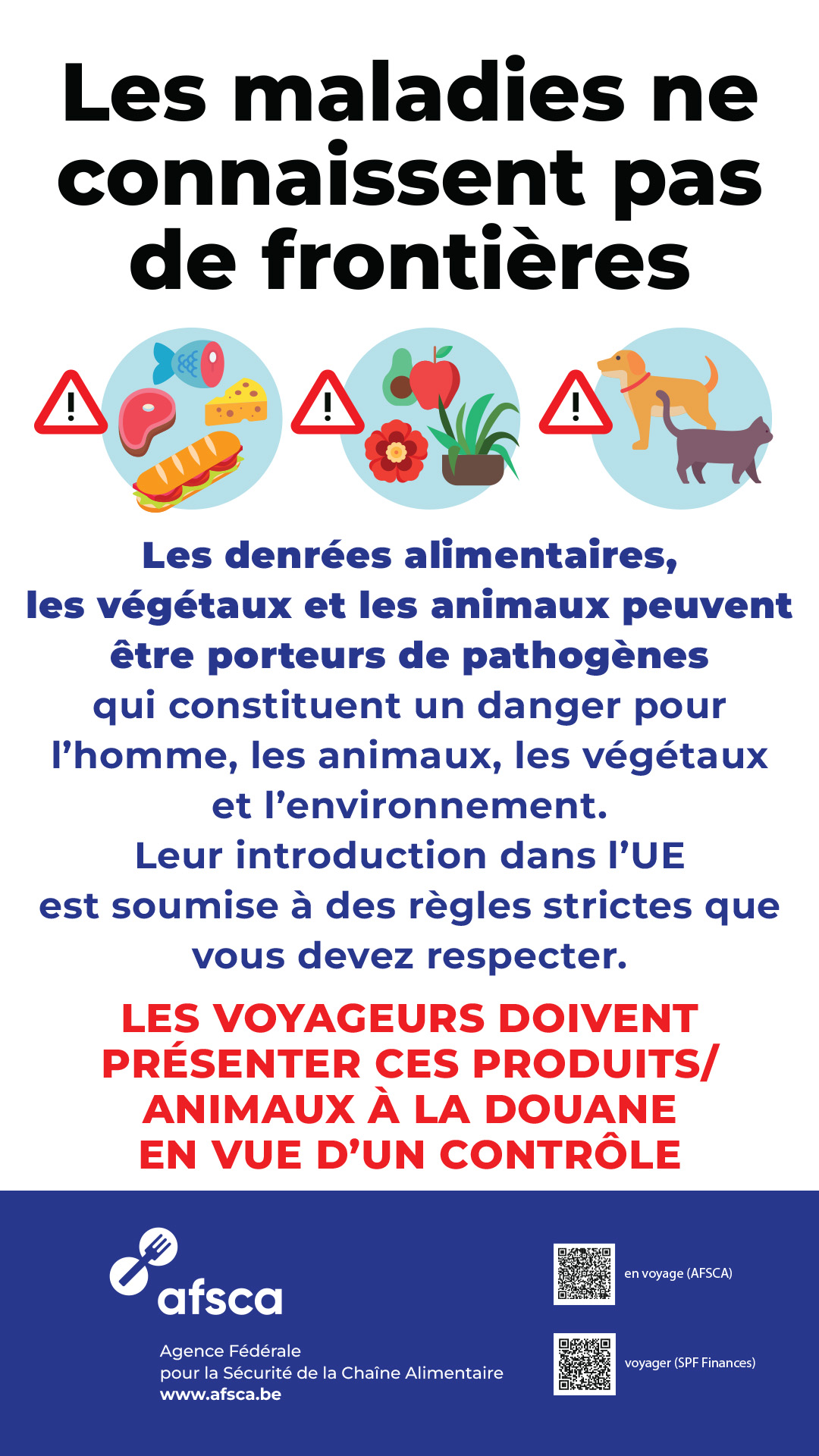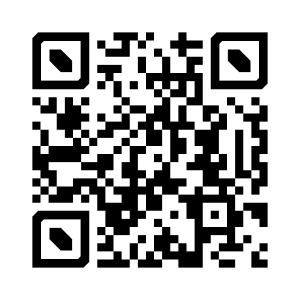Prepare your trip
Arrival time at the airport
Advice on arrival time at the airport
It is recommended that you arrive at the airport approximately 2 hours before your scheduled departure time. During busy periods (school holidays, weekends,...), we ask our passengers to arrive 3 hours before departure
Go to the flights of the day page to find out the recommended arrival time at the airport for your flight.
In your hand luggage?
The cabin baggage policy is regulated by each airline. It is therefore essential to consult their website to find out what can be taken on board.
The size of your hand luggage may not exceed the following dimensions: 55X40x20cm.
Please note that you are only allowed to take one bag per passenger.
Baby food (both milk and food in pots) are permitted in hand baggage. The quantity is that necessary for the duration of the flight. Security agents may ask you to taste them to prove that they are indeed baby foods.
Medication and dietary supplements to be consumed during the flight are also permitted. Security agents may ask you to taste them to prove that they are indeed medications are dietary supplements.
USEFUL INFORMATION :
- Mark your name and address legibly on the inside and outside of your baggage
- With regard to liquids, pastes and gels, you are only permitted to carry containers of no more than 100 ml of these, placed in a single transparent bag per passenger, closed by a zip, with a maximum capacity of one litre (e.g. a 20 cm x 20 cm freezer bag).
- Pack all fragile objects carefully
- The following objects are prohibited in cabin baggage:
- Liquids, pastes and gels in containers of more than 100 ml
- Blunt objects
- Revolvers, firearms and weapons
- Knives and sharp objects
- Explosive and inflammable substances
- Chemical and toxic substances
Your checked baggage?
The policy on baggage that can be carried in the hold is regulated by each airline.
To find out how many pieces of luggage you can carry and their weight, check your reservation or boarding pass.
Another alternative is to check with your airline.
We advise you to carefully pack your fragile items and not to leave any valuables in checked luggage.
If you wish to take more than the allowance granted to your reservation, you will then be asked to pay a supplement at the airport according to the rates applied by your airline. For further information, please consult your airline's website.
Whatever you are carrying in your luggage, it may not exceed 32kg.
It is advisable to affix a luggage tag with your contact details on your luggage and to leave a document inside, with your name, address and contact number.
ADVICE :
- Mark your name and address legibly on the inside and outside of your baggage
- Put liquids, pastes and gels in your hold baggage
- Do not put objects of value in your hold baggage
- Pack all fragile objects carefully
- Do not accept baggage or packages from third parties
- The following objects are prohibited in hold baggage:
- Explosives, including detonators, primers, grenades, mines and explosives
- Gas, propane, butane
- Inflammable liquids, including petrol and methanol
- Inflammable solids and reactive substances, including magnesium, fire-lighters, fireworks and signal flares
- Oxidants organic peroxides, including bleach and body repair kits
- Toxic or infectious substances, including rat poison and infected blood
Hold baggage is examined by sophisticated X-ray machines. If a prohibited object is found in your hold baggage, an audible warning broadcast in the terminal informs you of a meeting point where a security agent will look for you in order to take you to your baggage for a manual search to be performed. If a prohibited object is found, it will not be permitted to travel.
Save time at check-in by checking in your baggage with express terminals !
Only a few steps are required:
- First, download the Ryanair application
- Once at the airport, scan the QR code on the kiosk
- Weigh your suitcase
- If your suitcase weighs too much, pay directly at the kiosk
- Place the ticket on your suitcase
- Scan the QR code at the check-in counter
- Then place your bag on the conveyor belt
- Leave with complete peace of mind
Find all the explanations illustrated in video :
Prohibited articles in hold baggages
In your checked baggage:
- Explosives, including detonators, fuses, grenades, mines and explosives;
- Gas, propane, butane;
- Flammable liquids, including gasoline and methanol;
- Flammable solids and reactive substances, including magnesium, firelighters, fireworks, signal flares;
- Organic oxidants and peroxides, including bleach, car body repair kits;
- Toxic or infectious substances, including rat poison, infected blood.
Prohibited articles in the cabin
In your carry-on baggage:
- Equipment likely, or appearing likely, to be used to cause severe damage by the emission of a projectile, in particular:
- Rocket guns and starter guns
- Toys, copies and imitations of firearms that may be confused with real weapons (e.g. air soft gun)
Articles with a sharp point or cutting edge that may be used to cause severe injuries, in particular:
- articles designed for chopping, such as axes, hatchets and choppers,
- ice axes and ice picks,
- razor blades,
- cutters,
- knives with a blade greater than 6 cm,
- scissors with blades, measured from the axis, exceeding 6 cm,
- martial arts equipment, sharp or cutting,
- lances,
- cleavers,
- machetes,
- scalpels,
- ski and walking/hiking poles,
- pointed end tent tube (Canadian tent type),
- tent pegs (for fixing the tent to the ground, known as "sardines").
Tools that may be used either to cause severe injuries or to threaten aircraft safety, in particular:
- Crowbars;
- Drills and borers, including portable cordless power drills;
- Tools with a blade or shank greater than 6 cm that can be used as a weapon, such as screwdrivers and chisels;
- Saws, including portable cordless power saws;
- Torches;
- Sealing guns and nailers;
- Hammers, wrench with bolts over 20 cm.
Articles which may be used to cause serious injury when used to strike, in particular:
- baseball and softball bats,
- cricket bats,
- golf clubs,
- hockey sticks,
- lacrosse game sticks,
- kayak and canoe paddles,
- billiard, snooker and pool cues,
- stove, cast iron stove,
- maglite powered by more than 2 batteries "D" (large batteries),
- martial arts equipment,
- large chain (motorcycle chain type),
- metal statue more than 20 cm high and with a heavy base,
- camera or heavy camera tripod,
- broom handle or similar.
Explosive or incendiary substances and devices that may, or appear likely to be, used to cause serious injury or threaten the safety of an aircraft, in particular:
- Dynamite, powder and plastic explosive;
- Copies or imitations of explosive devices;
- Gas and gas container (example: butane, propane, acetylene, oxygen) of large volume;
- Fireworks and other pyrotechnic articles (including table bombs and igniter ribbons);
- Alcoholic beverages with a volume content of more than 70% ("140% proof");
- Smoke bombs or cartridges;
- Flammable liquid fuels, such as gasoline, lighter fluid, alcohol, ethanol;
- Substances with a risk of ignition or spontaneous combustion;
- Spray paint can;
- Turpentine oil and paint thinners.
Any chemical or toxic substance that poses a risk to the health of passengers and crew or to the safety of the aircraft or property, such as:
- Acids and alkaloids, as electrolyte cells and batteries that may leak;
- Corrosive substances and bleaching products, as mercury, chlorine;
- Radioactive materials, such as medical or commercial isotopes;
devices capable, or appearing capable, of being used to cause serious injury by discharging a projectile, including:
- firearms of all types, such as pistols, revolvers, rifles, shotguns
- toy guns, replicas and imitation firearms capable of being mistaken for real weapons,
- component parts of firearms, excluding telescopic sights,
- compressed air and CO2 guns, such as pistols, pellet guns, rifles and ball bearing guns,
- signal flare pistols and starter pistols,
- bows, cross bows and arrows,
- harpoon guns and spear guns,
- slingshots and catapults;
Special luggage
If travelling with children, it is possible to bring a stroller.
Your pets can also be part of the trip. Feel free to contact your airline for more information.
Need assistance?
- Person with reduced mobility
information here
- Unaccompanied minor
Some airlines accept to transport minors travelling alone.
In this case, an airport staff member from our PMR service can escort your child until he or she is seated on the plane
Useful information for travelers
Find information you need in the Brochure of belgian Federal Public Service Finance :
- Duties and taxes
- Controls ont the movement of cas
- Endangered animals and plants
- Counterfeited goods
- Travelling with your pet
More information on animal-plant products and animals authorised to enter the EU via https://favv-afsca.be/fr/themes/importation-et-exportation/importation/importation-pays-tiers/bagages-des-passagers



Stay updated with the latest information about your flight or our services by downloading our mobile application CRL Airport.


